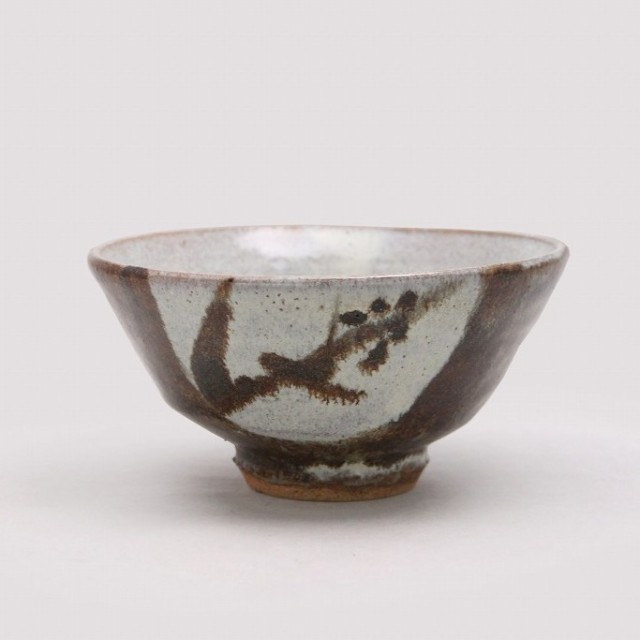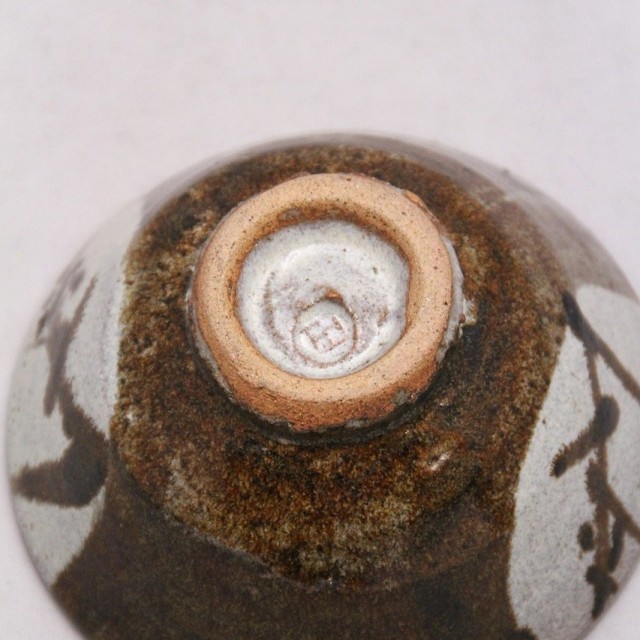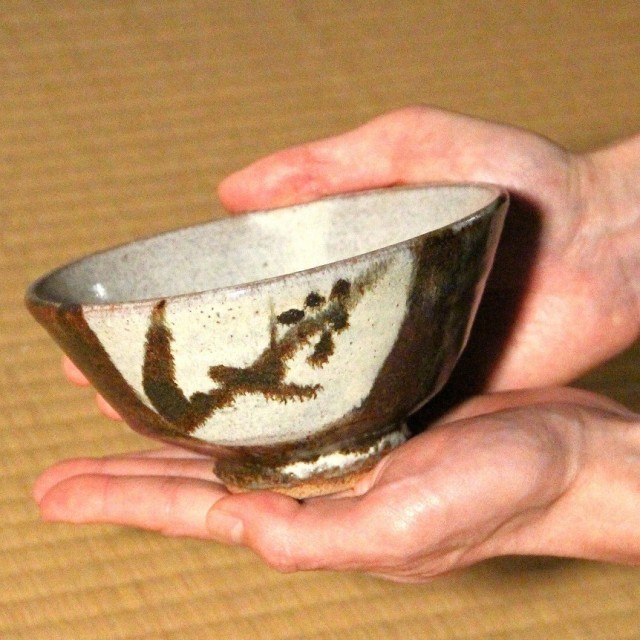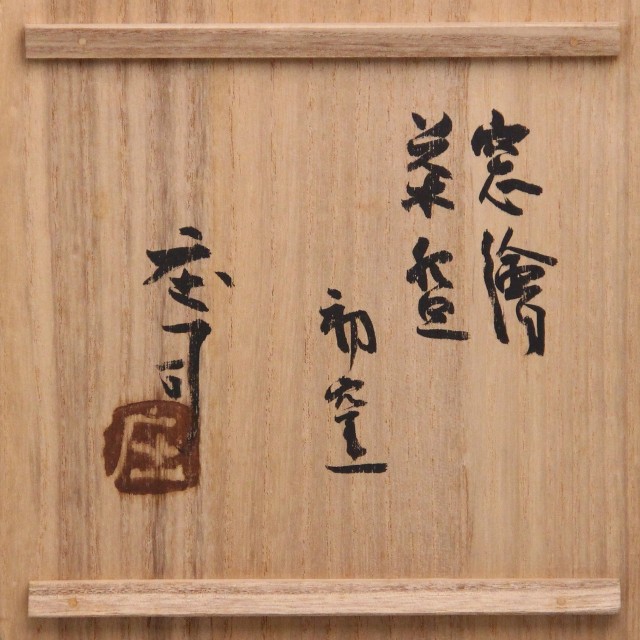






with original wooden box (tomobako)
Living National Treasure
Diameter 14 cm × Height 7 cm
This rare tea bowl by Living National Treasure Shoji Hamada dates to the Showa period.
On two sides of the bowl, his signature “tōkibi” (sorghum) motif is delicately rendered within window-like panels ("mado-e").
The original wooden box (tomobako) is inscribed with “Hatsugama” (first firing), and the base of the bowl bears the rare “田” (ta) seal.
Hamada typically did not mark his works with seals, making this example exceptionally rare.
This piece is believed to be from the early years after Hamada established his own kiln.
Shoji HAMADA(濱田庄司)
1894 - 1978
He was a potter within the folk tradition of Japanese. He was a long-time friend of Kanjiro Kawai, Soetsu Yanagi, and Bernard Leach with whom he co-founded the Japan Folk Art Association in 1926. Hamada became an important figure in the Japanese folk arts movement. After 1923, he moved to Mashiko where he rebuilt farmhouses and established his large workshop. Throughout his life, Hamada demonstrated an excellent glazing technique, using such trademark glazes as temmoku iron glaze, nuka rice-husk ash glaze, and kaki persimmon glaze. Through his frequent visits and demonstrations abroad, Hamada influenced many potters of the world in later generations as well as those of his own.
Contact about the Item